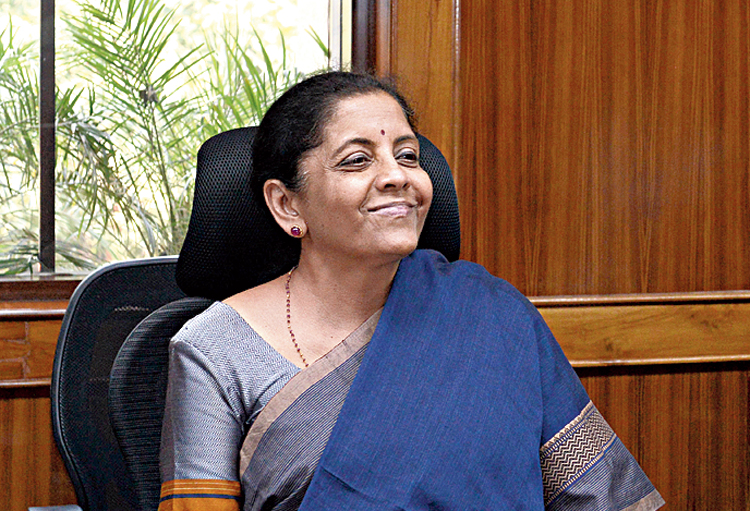The stock markets were badly roiled on Monday as confusion prevailed over the tax treatment of a certain category of foreign portfolio investors (FPIs) in the budget presented last Friday.
The sentiment was battered by the startling prospect that these investors might have to pay the tax surcharge slapped on the country’s fat cats who earn more than Rs 2 crore a year.
The Sensex sank over 900 points to 38,605.48 in the late afternoon with the market spooked by the prospect that alternative investment funds registered as an association of persons (AOPs) would end up having to pay a higher effective tax rate on their long and short-term capital gains.
The government refused to clear the air, leaving a deep sense of uncertainty hanging over the market.
P.C. Mody, chairman of the central board of direct taxes (CBDT), said in the morning that the government would clarify the situation. “The matter (surcharge on FPIs) has been brought to our notice. We will issue a clarification soon,” Mody said while addressing an event organised by Assocham in Delhi.
But by late evening, the government had reversed its stand.
“I don’t think a clarification is required at the moment,” finance minister Nirmala Sitharaman told reporters during a briefing after her meeting with the board of directors of the Reserve Bank of India. “Let’s see as it goes. You think it is required,” she asked.
The Sensex recovered at the close of a skittish day of trading to close at 38,720,57, down 792.82 points or 2.01 per cent. The bellwether index has tumbled by 1187.49 points since Friday’s budget.
The budget proposes to increase the surcharge from 15 per cent to 25 per cent on taxable income between Rs 2 crore and Rs 5 crore, and from 15 per cent to 37 per cent for income above Rs 5 crore.
The so-called tax on the super-rich that the government imposed in Friday’s budget could affect some foreign funds since the surcharge is supposed to be levied on individuals, Hindu undivided families (HUFs) and Associations of Persons (AOPs).
Some foreign portfolio investors — largely those classified as category III alternative investment funds — are registered as trusts and could be recognised as AOPs for tax purposes. These investors are subject to long and short-term capital gains.
The imposition of the surcharge on capital gains tax will raise the effective peak rate to 14.25 per cent on long-term capital gains and to 21.37 per cent on short-term capital gains.
“The worst impact will be on income from derivatives where the tax rate will go up to 42.74 per cent,” said Suresh Swamy, partner, PwC Financial Services. “The FPIs are seeking clarity on these provisions as they need to know whether they should provide for these taxes or not.”











